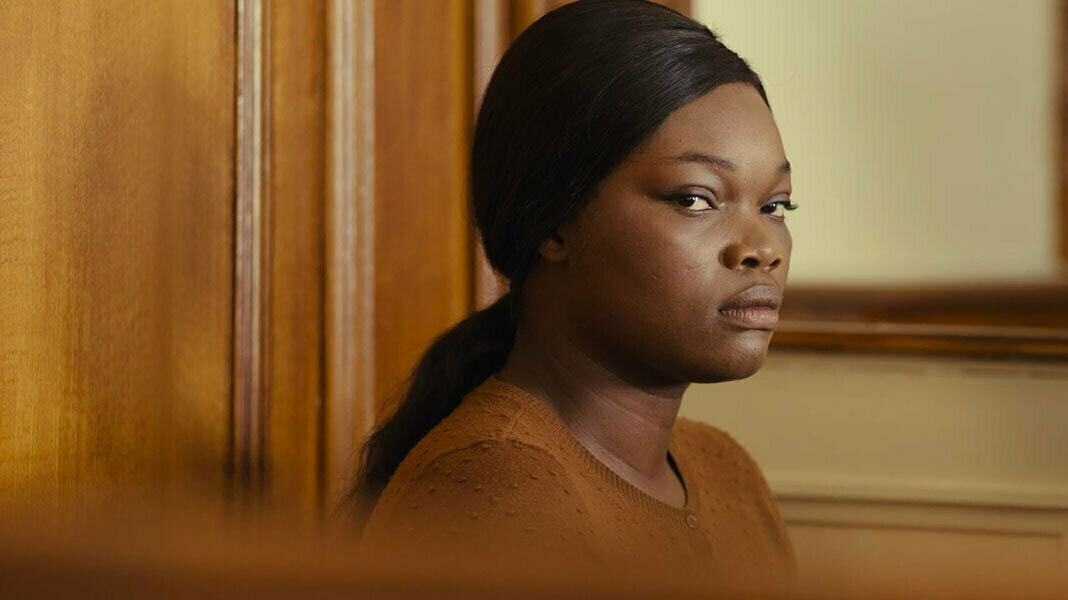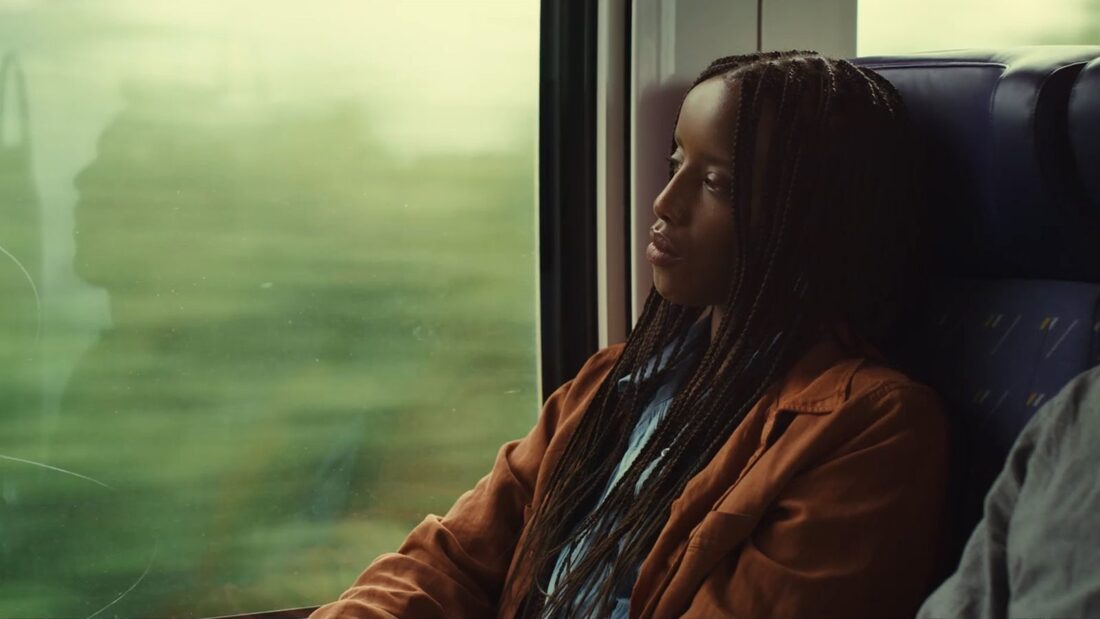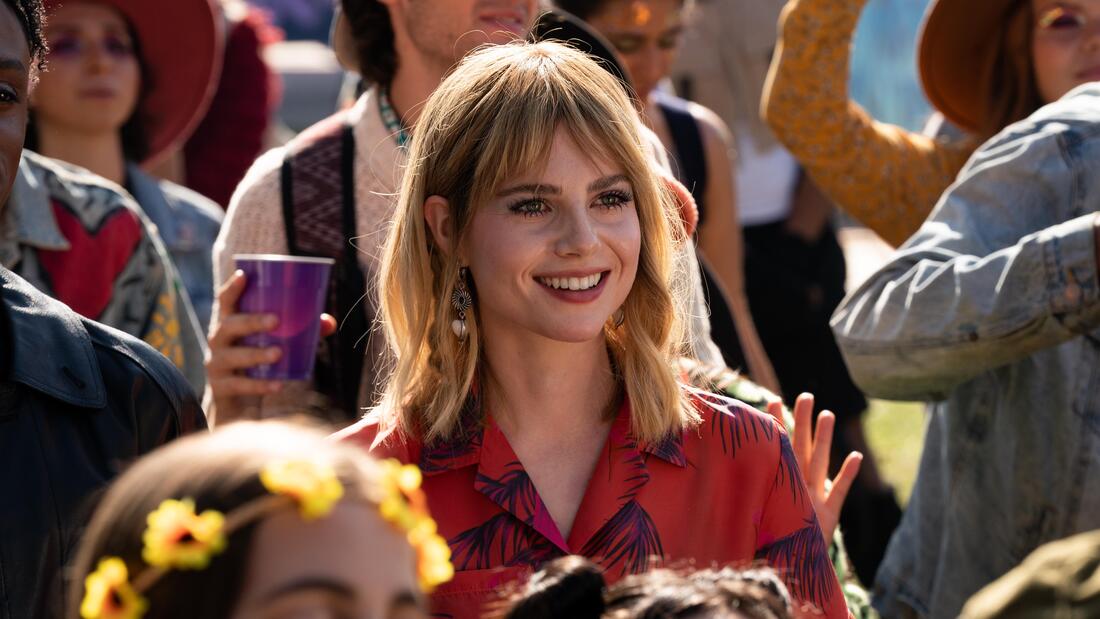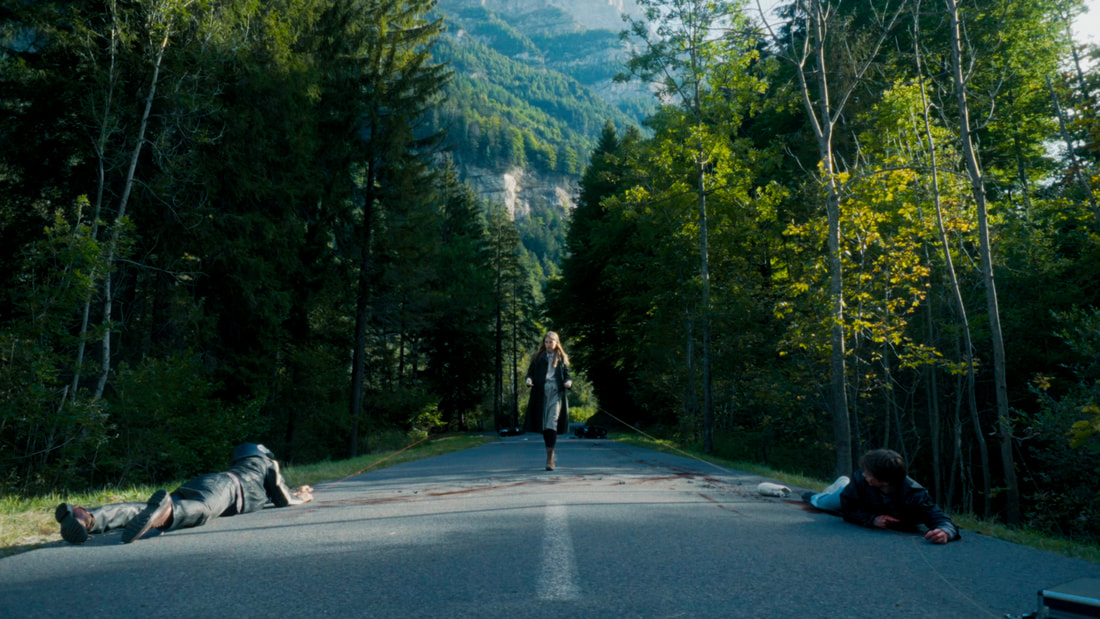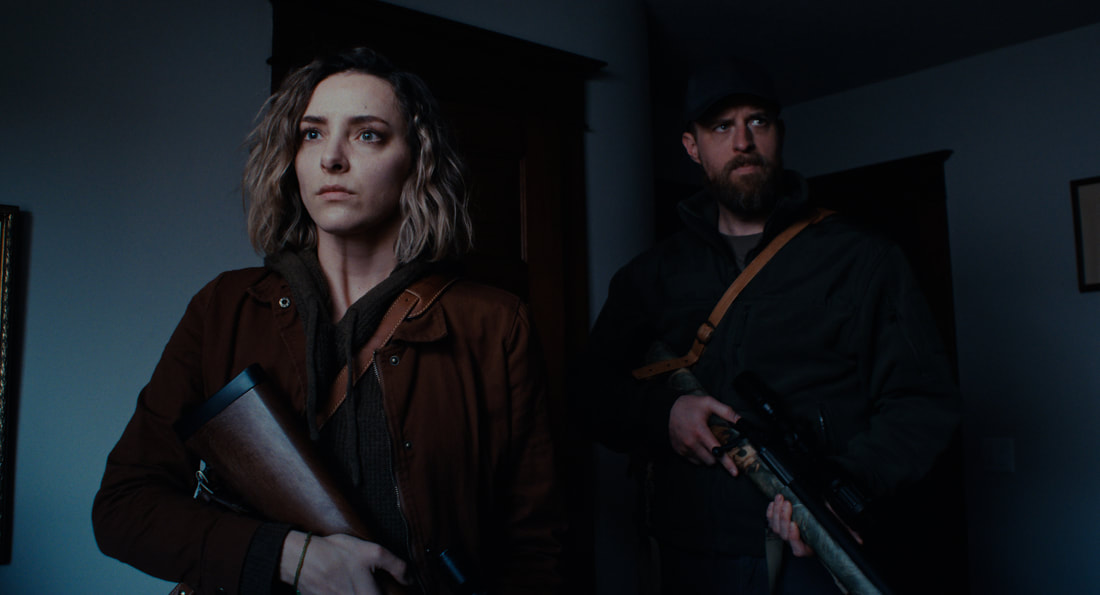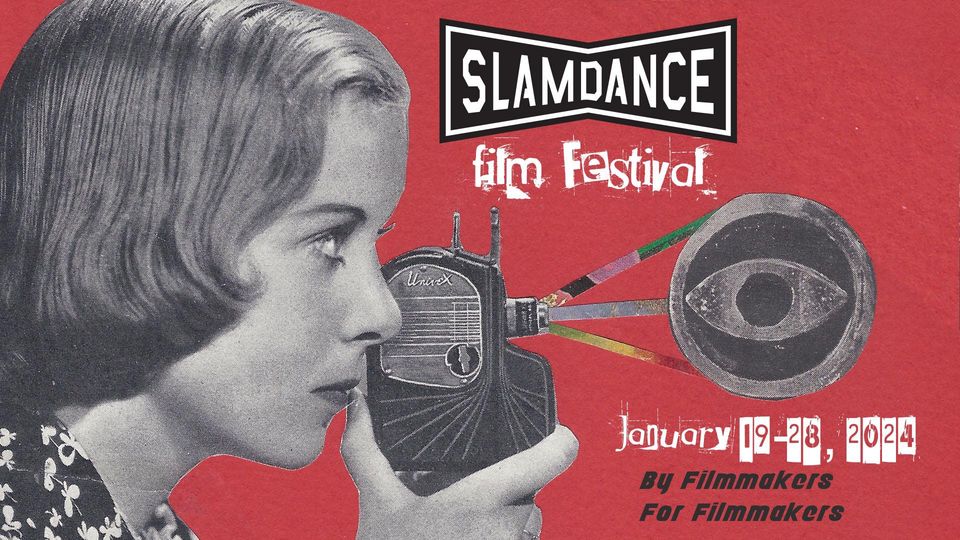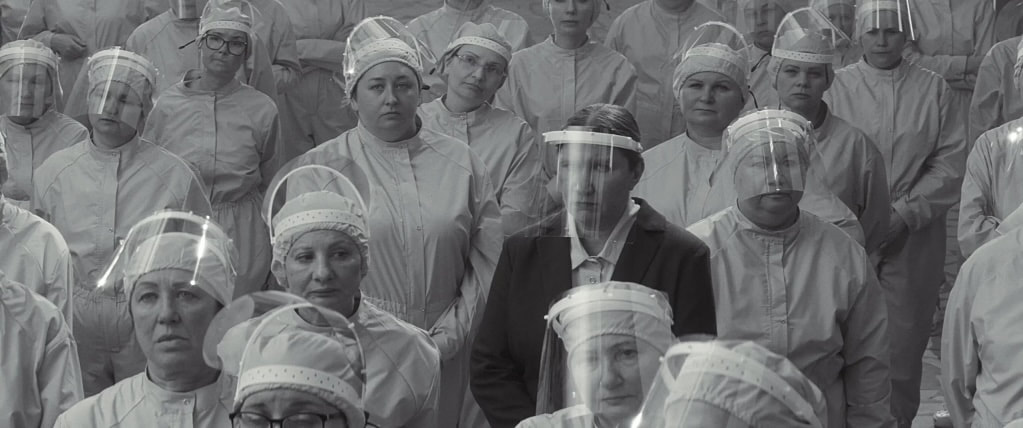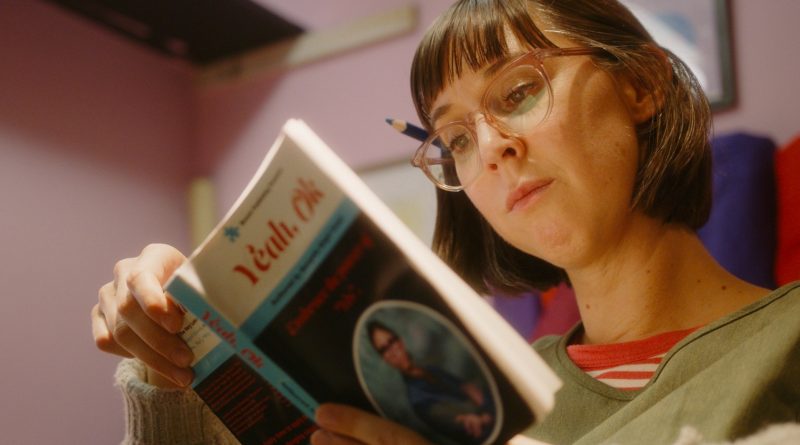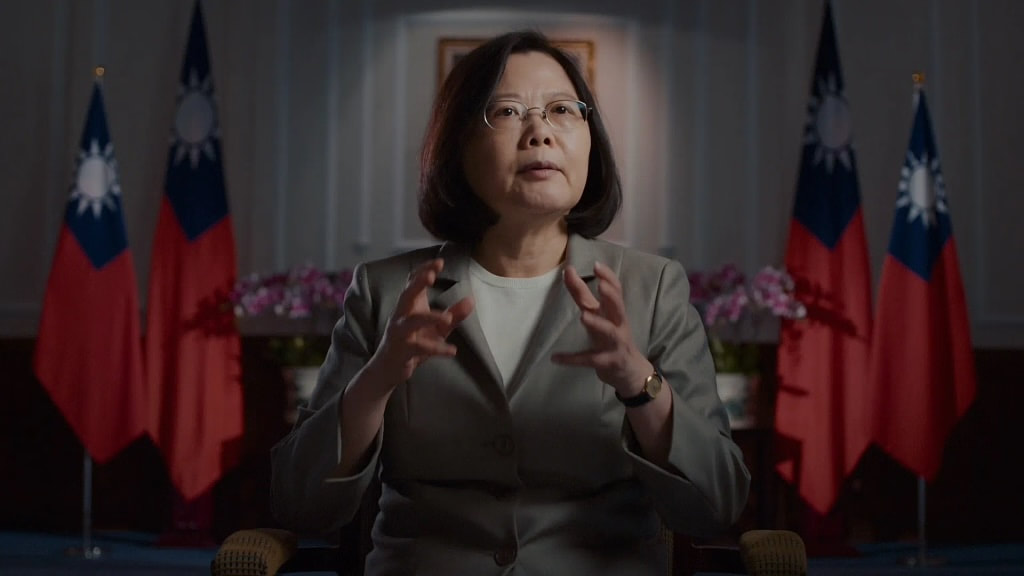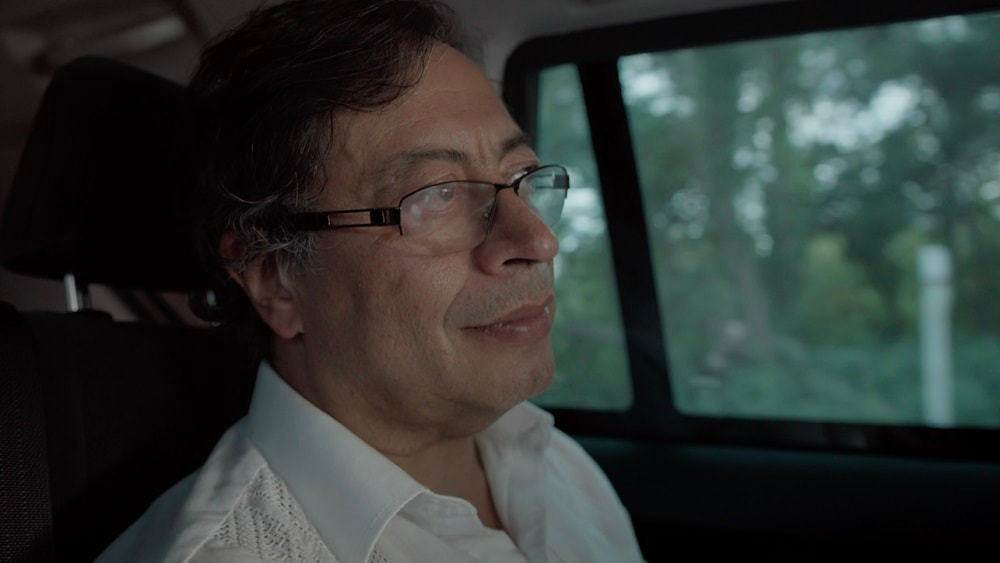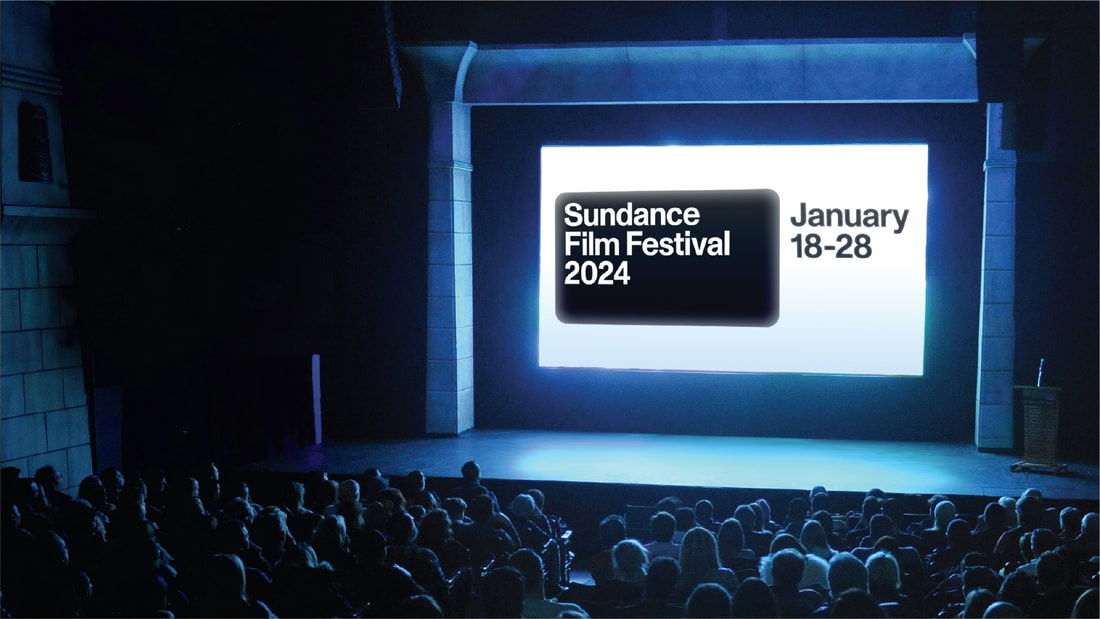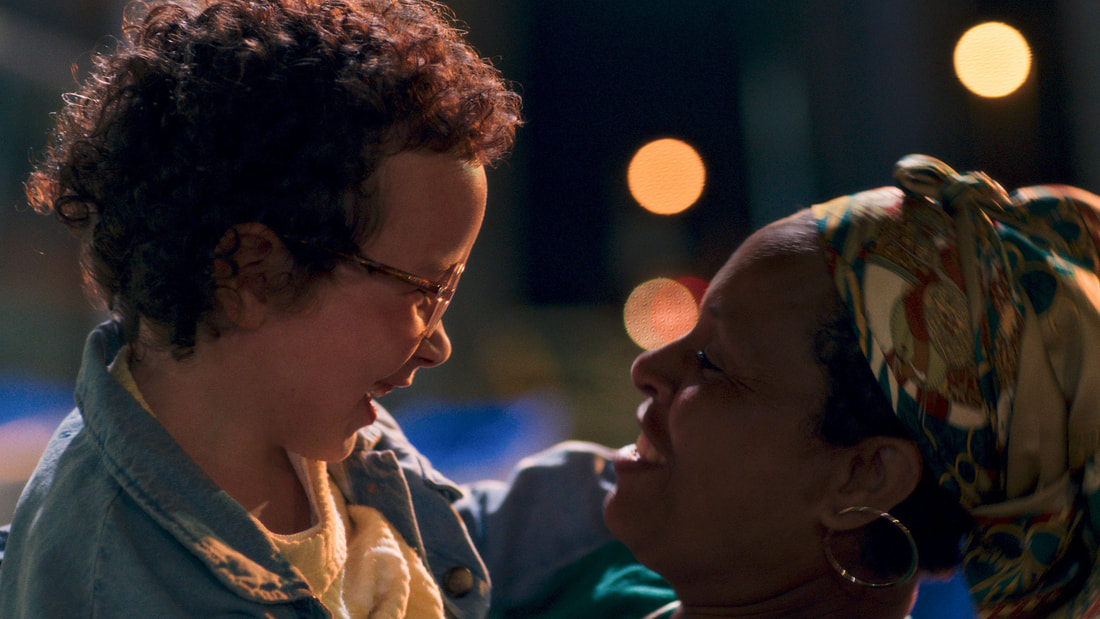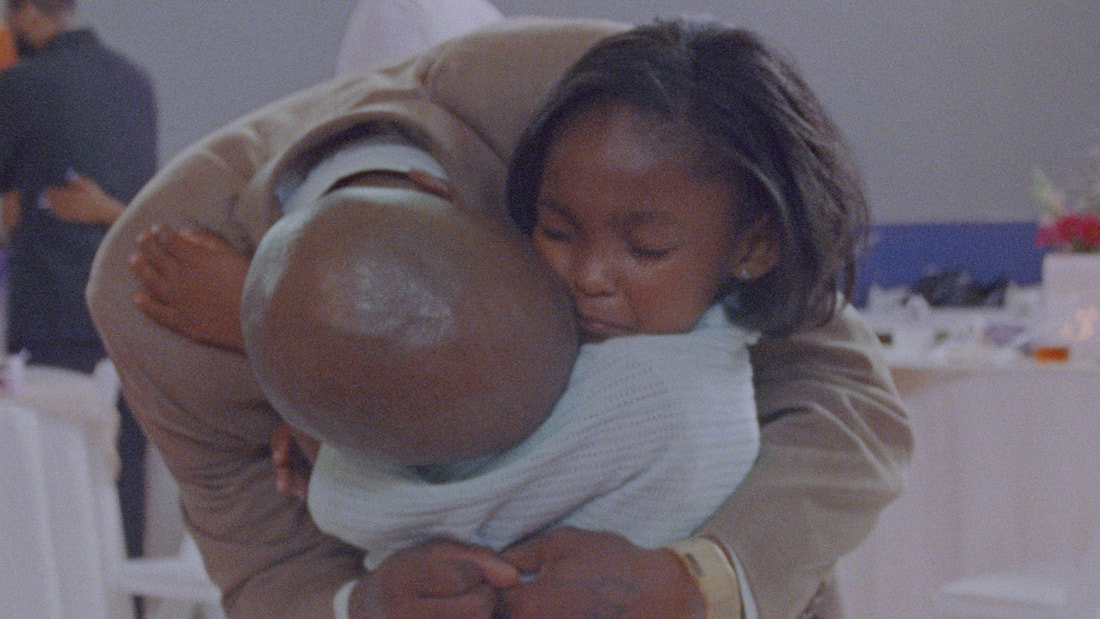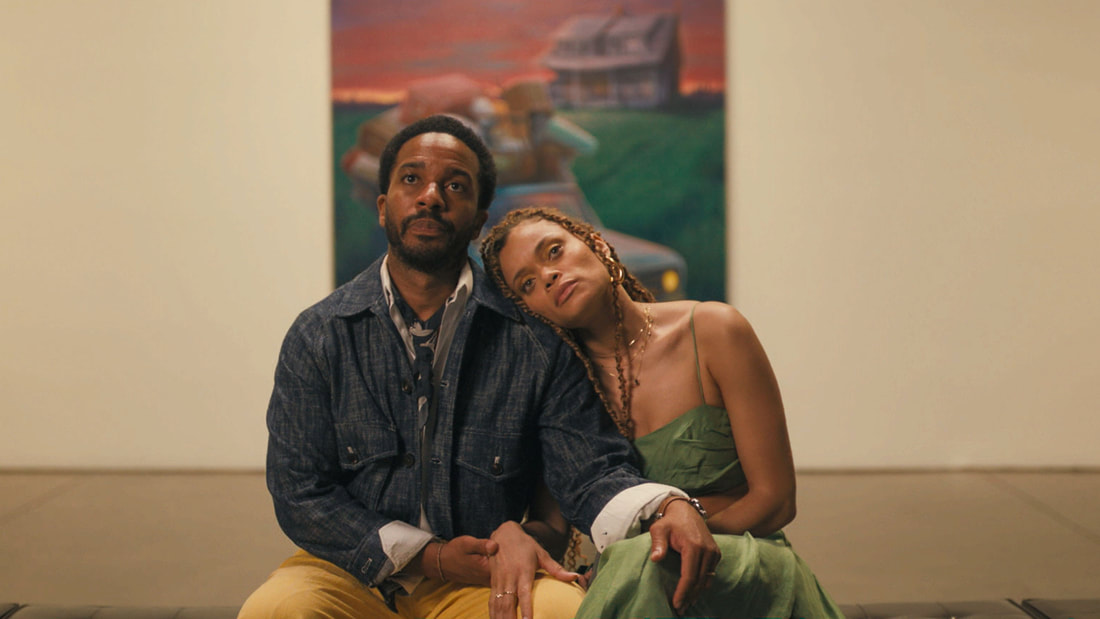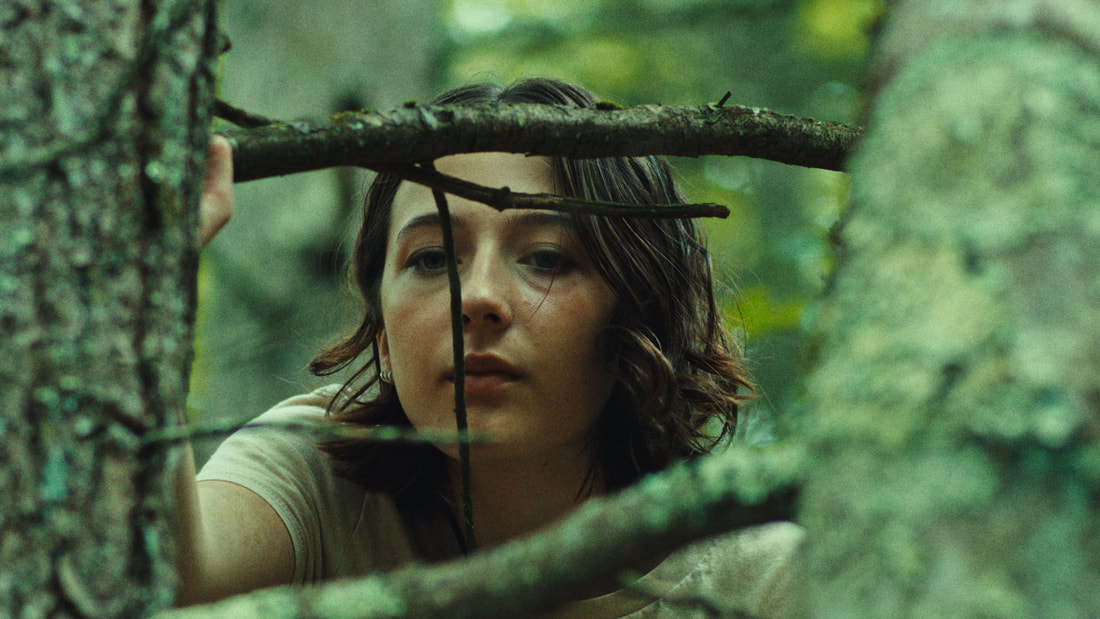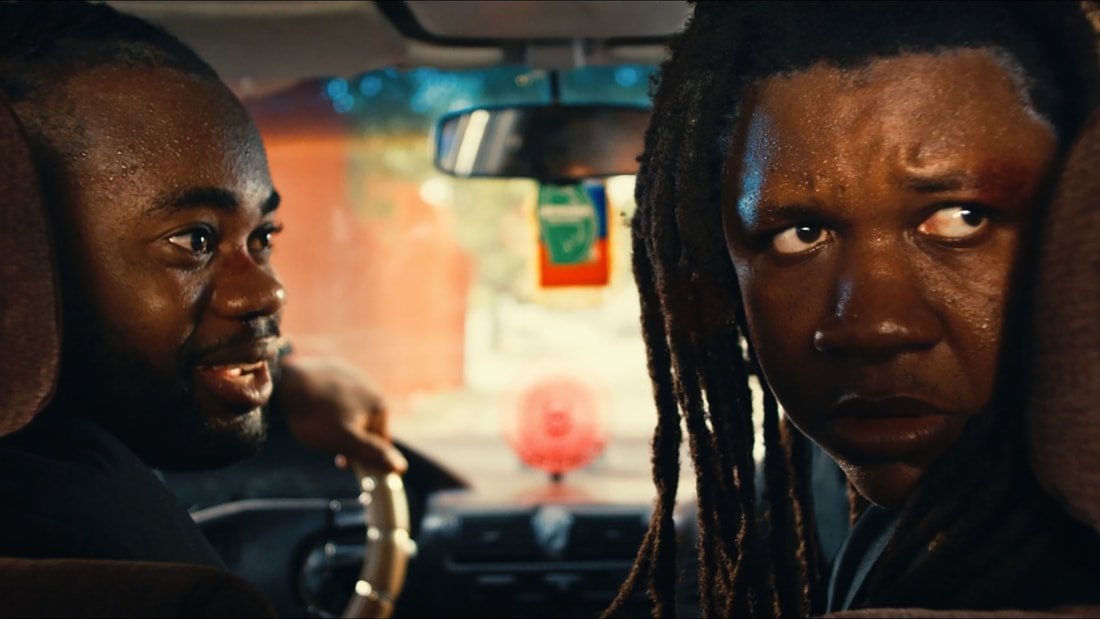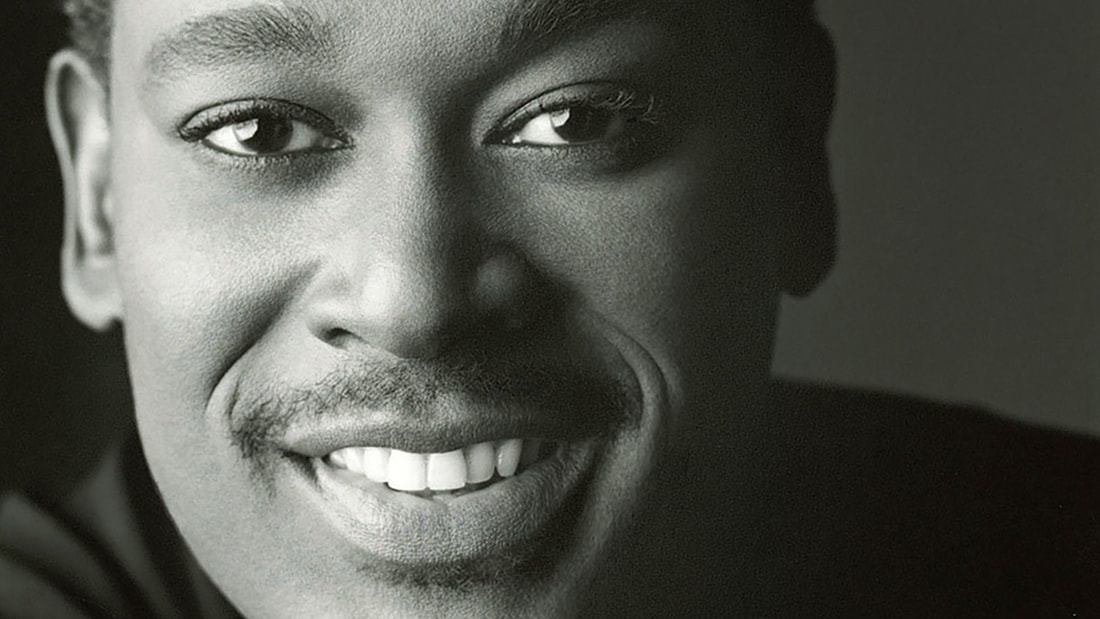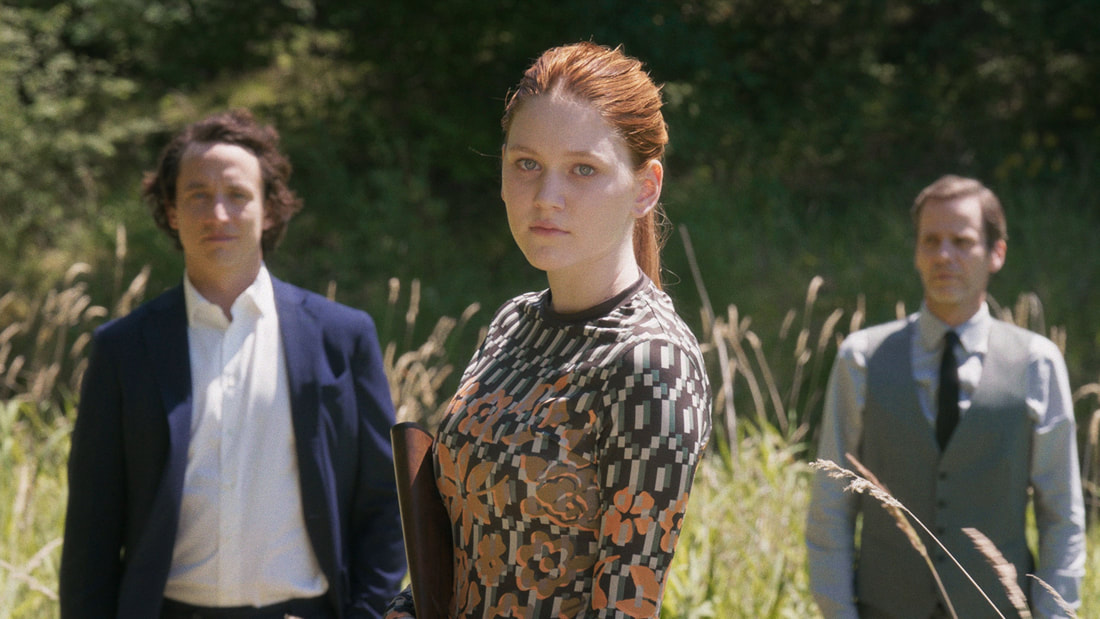|
By Sean Boelman In recent years, the Tribeca Festival has been working to expand its offerings beyond purely film screenings. Although the films in the lineup are often excellent — a combination of buzzed-about, starry premieres and some hits from earlier festivals in the year — some of the biggest highlights are the talkback sessions and other post-screening events that enrich the experience. Here are a few things we think you should check out at this year’s Tribeca, from great films to once-in-a-lifetime events paired with film screenings: Between the TemplesNathan Silver’s Between the Temples premiered at this year’s Sundance Film Festival and immediately cemented itself as one of the most hilariously uncomfortable films of the year. Starring Jason Schwartzman as a cantor who has recently become a widower and Carol Kane as his former elementary school teacher, the film switches between heartwarming, awkward, and funny — often all within the same scene. If you’re looking for an entertaining movie to watch at this year’s Tribeca, you’ll have a hard time finding one better than this. KneecapThe music dramedy Kneecap perfectly splits the line between crowd-pleasing and incendiary, which is why it has been such a hit on the festival circuit so far. The film, a fictionalized telling of the story of the formation of the eponymous Irish hip-hop group, also offers some unexpected insight into the need for cultural preservation. If the buzz around the film wasn’t enough to attract festivalgoers to see the movie, the band will be doing a special performance for ticketholders, making this a night you absolutely will not forget. She Loves Blossoms MoreTribeca is unique among mainstream festivals in that it features not one but two sections devoted to the cinema bizarro that exists on the fringes of the fest circuit. Launched last year, the Escape From Tribeca sidebar is separate from the traditional Midnight programming, featuring wild, crazy, and — most importantly — fun genre films. There isn’t a film that better encapsulates this in this year’s lineup than the Greek sci-fi film She Loved Blossoms More, which blends horror, comedy, and trippy experimental cinema in a way that is equal parts hypnotic and hilarious. The sickos of the cinephile community (a term endearingly used by one of your own) will *not* want to miss this. Skywalkers: A Love StoryHowever, it’s not just the limits of good taste that festivalgoers can expect to see pushed at Tribeca this year, they can also expect to see the limits of human capability tested. The documentary Skywalkers: A Love Story premiered to great acclaim at this year’s Sundance to great acclaim, and Tribeca is offering a rare opportunity for attendees to see the film about two Russian daredevils in IMAX. It’s a beautifully shot and unexpectedly compelling film, and you won’t want to miss the opportunity to see this on one of the best and biggest screens in NYC. TreasureAlthough its Berlinale premiere was overshadowed by the premiere of the similarly-themed (and buzzier) A Real Pain at Sundance, Julia von Heinz’s Treasure is making a stop at Tribeca ahead of its theatrical release later this month. The film stars Lena Dunham and Stephen Fry as a daughter and father who return to his homeland of Poland, which he left after surviving the Holocaust. It’s not a particularly subtle film, but it offers an interesting perspective on this story and explores a side of this conflict that hasn’t really been shown before. The 2024 Tribeca Film Festival runs June 5-15 in New York City.
0 Comments
Review by Sean Boelman
Recently, Criterion has been partnering with indie distributor extraordinaire NEON to release some of its films through the boutique label. The latest is Saint Omer, a criminally underseen courtroom drama that served as documentarian Alice Diop's narrative feature debut. This release is a welcome opportunity for fans to get their hands on a copy of the best movie of 2022.
Saint Omer follows a novelist who attends the trial of a woman accused of murdering her infant daughter, causing her to reflect on her own life and how the case resonates with her. Submitted by France for the Oscar for Best International Feature but unfortunately snubbed, Saint Omer holds up incredibly well. Diop’s film stands out from most other courtroom dramas because of its documentary-like approach, which makes sense considering her background in nonfiction filmmaking. It is not the type of court movie with quick dialogue and chess-like legal tactics; Diop is much more interested in the intricacies of the story and their even deeper implications and contexts. The result is a movie that feels incredibly emotional, even by the genre's standards. Of course, there was no doubt that a movie about a mother accused of these crimes wouldn’t be a stirring watch, but the perspective through which Diop presents it makes the emotional elements all the more complex and impactful.
Diop also has some worthy and talented collaborators in actresses Guslagie Malanda and Kayije Kagame. Saint Omer rightfully served as a breakout for Malanda, whose tremendous performance as the woman on trial is as crushing as they come (she would later appear in The Beast alongside Lea Seydoux and George McKay). Yet, although Malanda’s performance is the more immediately forward, Kagame’s stands out on rewatch as especially potent in its quietness and mannerisms.
However, what stands out most about Saint Omer, upon revisiting it over a year later, is how tender it is with its themes. Although the story might seem somewhat straightforward on its surface, there are incredibly prescient undercurrents running through it, exploring themes like immigration, femininity, and misogyny. The script, written by Diop along with Amrita David and Marie N’Diaye, sticks with you in ways you would not expect. In terms of bonus features, this edition of Saint Omer features some new interviews with director Alice Diop, making it a relatively bare release compared to most of the newer movies that enter the Criterion Collection. The 2K restoration is solid, but it is important to note that this is not being released in 4K — only Blu-Ray and DVD. Ultimately, the Criterion of Saint Omer is worth picking up, if only to get the opportunity to own this incredible work of French cinema. Unlike most of NEON’s films in the collection, Saint Omer had previously not received a physical media release in the US — only streaming and digital media — and any francophile or cinephile who admires world cinema will undoubtedly want to have this on their shelf. The Criterion Collection edition of Saint Omer is now available.
By Sean Boelman
Although SXSW is known for its flashy world premieres of big-budget blockbusters (and don’t get us wrong—we’re just as excited about The Fall Guy as everyone else), the Austin-based film and television festival also showcases a ton of indie projects and smaller-scale studio films that festival-goers absolutely should not miss.
We at disappointment media want to recommend a few films we think you shouldn’t miss that are playing at this year’s SXSW: Billy & Molly: An Otter Love Story
Admittedly, the inclusion of this documentary on this list might be clouded by the fact that otters are one of the few animals this writer actually finds cute. Putting that aside, though, Billy & Molly: An Otter Love Story has plenty of reasons to recommend it to festival-going audiences. The film tells the story of a man in the Shetland Islands who forms an unexpected friendship with a wild otter. It’s an adorable, sweet story, less than 80 minutes long, and shot in beautiful 4K cinematography by Charlie Hamilton-James — what’s not to love?
The Greatest Hits
Cinephiles are probably most familiar with filmmaker Ned Benson for The Disappearance of Eleanor Rigby, his trilogy of films telling the same story from different perspectives. His long-awaited return to the directorial chair is the romantic drama The Greatest Hits, which feels like an American answer to the work of filmmakers like John Carney and writer Nick Hornby. The film stars Lucy Boynton as a woman with a strange condition — whenever she listens to certain songs, she is transported back in time to the last moment she heard them with her deceased boyfriend. It’s a lovely film, and it will be released by Searchlight next month in theaters and on Hulu, so don’t miss the chance to check this one out.
Resynator
Alison Tavel’s documentary Resynator starts out seeming like a standard music documentary as she investigates the synthesizer she discovers was invented by her father. However, as she interviews her father’s peers and family members, the film turns into something much more personal and profound. It’s nice to see a movie like this — telling the filmmaker’s personal story — that is so unafraid to explore the darker elements with such honesty and empathy.
Sew Torn
Sew Torn is the feature debut of filmmaker Freddy Macdonald, adapted from his short of the same name. The short picked up some significant buzz after its release, and canny festival-goers will check the feature out expecting the same. This bonkers crime thriller follows a seamstress who gets caught up in a drug deal gone wrong, leaving her three options: commit the “perfect” crime, call the police, or drive away. The film plays out each of the choices in a format that’s edge-of-your-seat thrilling.
Things Will Be Different
Michael Felker has worked with the filmmaking duo Justin Benson & Aaron Moorhead as an editor since Spring, so it’s no surprise that his feature directorial debut, Things Will Be Different, is a mind-bending indie sci-fi thriller. You won’t soon forget this mysterious flick about two siblings who travel to a time-traveling farmhouse to lie low after committing a robbery, only to get stuck in a dangerous limbo. It might not be the type of movie you first think of when you think of a midnight movie, but it’s undoubtedly effective — and occasionally even super gnarly.
The 2024 SXSW Film Festival runs March 8-16 in Austin, TX.
By Daniel Lima and Sean Boelman
Slamdance has long been known as the “indie-r cousin” of Sundance, as it happens at the same time as the higher-profile festival in its mountain home of Park City, Utah. However, Slamdance has made a name for itself as a platform for up-and-coming filmmakers from around the world to showcase their edgy, experimental, and — most of all — independent visions.
We at disappointment media covered the 2024 edition of Slamdance remotely. Here are a few of the films we saw in the festival lineup and our thoughts on them:
Reviews by Daniel Lima
Anna's Feelings
Whoever thought there was enough here to sustain one hundred and thirty minutes of screentime should be criminally prosecuted. Anna’s Feelings is about a factory worker in a small Russian town who begins to hear aliens speaking to her, disrupting the lives of her entire family. This is a formulaic indie dramedy, predictable to the point of parody, shuffling along at such a laborious pace that one is fooled into expecting some subversion or deeper meaning. There is none. It's a shame to see Anna Mikhalkova’s great performance so wasted.
Darla in Space
There are two ways a film about a woman who discovers a kombucha mother that grants transcendental orgasms can go: absolutely bonkers in embracing a premise so strange or disappointingly milquetoast as it slowly reveals that the filmmakers only thought as far as that premise. Darla in Space, unfortunately, is the latter, content with coasting on the charms of the lead actress and the voice performance of the mother without ever actually coalescing into being actually about anything. That lack of vision is perfectly exemplified by the lazy AI-generated images meant to capture how those orgasms feel.
Hell of SE
I would be lying if I said I knew, at any point, what the hell was going on in Hell of SE. As far as I can tell, it is a meandering, opaque portrait of youthful angst and ennui. Yet it’s hard to find fault in director Sawa Kawakami’s deliberately experimental style, actively challenging not only the audience but also her own capabilities. The disaffected performances, shooting the film on formats including MiniDV and the Nintendo 3DS, it’s genuinely exciting to see a filmmaker who actively tries to make such an abrasive feature debut — even if it is impossible to decipher.
Reviews by Sean Boelman
Invisible Nation
Slamdance’s documentaries tend to be much more polished than the festival’s narrative features, and the closing night selection of the festival, Vanessa Hope’s Invisible Nation, is a very sleekly directed film. Although the documentary is primarily about the election and term of Taiwanese President Tsai Ing-wen, it uses this as a starting point to ask many big questions. In many ways, the film almost works better as an exploration of the overall merits of democratic government than a biography of this particular political figure, but Hope mostly does a great job of tying together the story with its historical background and broader implications.
Petro
The interesting thing about Petro is that there’s another documentary about the same election, from the side of another candidate, playing at the *other* Park City festival. Of course, it’s hard not to compare the two, but they’re on surprisingly equal ground. This portrait of Colombian President Gustavo Petro (spoiler alert, he was the victor) is a mostly straightforward biographical documentary. With a strong mix of archive footage, talking head interviews, and fly-on-the-wall footage — with an astounding level of access to Petro himself — the documentary offers a mostly compelling look at the political landscape of Colombia. Unfortunately, it fails to connect this to the big picture in a way that makes it feel like essential viewing.
The 2024 Slamdance Film Festival ran January 19-25 in-person in Park City, UT and online from January 22-28.
Review by Sean Boelman
In 2024, Sundance again offered a hybrid edition of the festival, with in-person screenings and festivities happening at the festival’s home in Park City, Utah, and nearby Salt Lake City, with select films available online across the United States.
We at disappointment media again got the opportunity to cover Sundance remotely. Here are some of the films we saw as part of this year’s lineup. àma Gloria
The French drama àma Gloria debuted in last year’s Cannes Semaine de la Critique before making its way to Park City. Filmmaker Marie Amachoukeli does a great job of tenderly exploring this unorthodox love between a 6-year-old girl and the nanny who essentially raised her. Although it’s a bit one-note, both thematically and emotionally, a brisk 86-minute runtime and great performances from Louise Mauroy-Panzani and Ilça Moreno Zego allow it to be consistently impactful.
And So It Begins
Filmmaker Ramona S. Diaz’s previous documentary exploring the intricacies of the Filipino political system, A Thousand Cuts, was widely acclaimed. Yet while that film took a compelling, investigative journalism-focused approach, her follow-up, And So It Begins, assumes the form of a more straightforward fly-on-the-wall campaign doc. Although the campaign of candidate Leni Robredo makes for a compelling story that opens the door to numerous questions, some of the most intriguing aspects of the film are not what was intended. Viewers might find themselves more interested in the unique mechanics of Robredo’s campaign than Robredo’s message, which feels counterintuitive to the film that Diaz was trying to make.
Daughters
Winning not just the Audience Award in the US Documentary Competition at Sundance but also the overall Festival Favorite award, it’s understandable why the documentary Daughters connected with audiences so well. It’s a crowd-pleasing, tear-jerking story of a group of inmates given the opportunity to connect with their children through a “Daddy-Daughter dance.” Some moments are thoroughly devastating, exposing systemic injustices that many other films have tried and failed to explore.
Exhibiting Forgiveness
Titus Kaphar’s Exhibiting Forgiveness is a visually stunning film, although it would be shocking if it were any less, considering the story revolves around an artist. In the movie, André Holland plays an artist who is unexpectedly visited by his estranged father, who hopes to reconcile. Holland shines — as does James Earl Jelks, who plays his father — but this story feels too slow and familiar to make much of an impact. Still, there are some incredible moments here, and Kaphar infuses the film with an ineffable sense of humanity. It will be intriguing to see what the filmmaker does next.
Gaucho Gaucho
Michael Dweck and Gregory Kershaw already explored and celebrated the weird world of Italian truffle hunters. Their latest film turns the camera to the traditions of Argentine cowboys known as “gauchos.” Anyone who saw The Truffle Hunters will be unsurprised to learn that the cinematography of Gaucho Gaucho is utterly spellbinding, with the choice to shoot in black and white allowing it to be particularly gorgeous. However, even beyond the surface beauty of the documentary, there’s a deep inner beauty thanks to the humanistic perspective Dweck and Kershaw take in exploring this community.
Good One
India Donaldson’s directorial debut, Good One, is incredibly confident, and even if it doesn’t always work, you have to admire how deliberate it is. Following a teenager who goes on a camping trip with her father and his best friend, the film is a ticking time bomb, leading to a result that is visible from a mile away. Still, even though we know what the film is going to say from moment one, its message resonates thanks to incredible performances — especially from newcomer Lily Collias.
Igualada
The story of activist (and now Colombian Vice President) Francia Márquez is a fascinating story deserving of the documentary treatment, but Juan Mejia Botero’s Igualada doesn’t quite do its extraordinary subject justice. The title refers to a derogatory term levied against Marquez during her bid for office that she reclaimed as part of her campaign. When Botero explores this backlash alongside Marquez, the documentary is utterly engrossing. However, the film too often falls back onto traditional biographical beats for it to make much of a lasting impact. In other words, this is yet another Sundance documentary carried by the strength of its subject.
Kidnapping Inc.
The Haitian crime comedy Kidnapping Inc. has some intriguing elements, but they don’t congeal into anything particularly satisfying. Following two down-on-their-luck kidnappers who become unwittingly entangled in a political conspiracy, the plot somehow feels overly simplistic yet also far too convoluted. It’s not very funny either, nor does the political satire pack much of a bite. Nevertheless, the film’s never boring — it’s so manic that it won’t let you get bored — and the final act, even if it feels entirely unearned, does leave you thinking.
Luther: Never Too Much
Dawn Porter is an incredible documentary filmmaker, so it’s massively disappointing that Luther: Never Too Much is almost completely a dud. The filmmaking on display is competent across the board, and there’s lots of great music and interviews. Yet the angle with which it approaches its subject’s story is frankly disrespectful to his legacy. Luther Vandross was an incredible talent, but this documentary focuses far too much on his struggles with weight — even despite including archive interviews in which he asked the media not to linger on or define him by his weight. There are so many more things this film leaves unexplored to focus on that thread.
Union
Stephen T. Maing and Brett Story’s documentary Union tells an essential story: the plight of Amazon workers fighting for the right to unionize. Maing and Story take an exposé-style approach, showing not only the methods that the Amazon Labor Union is using to fight for workers’ rights but also the unethical union-busting practices of the biggest company in the world. The film is equal parts inspiring and infuriating, but at a certain point, one has to wonder if this film will only reach people who already agree with its message.
Veni Vidi Vici
The social satire Veni Vidi Vici desperately wants to be a riff on the themes of The Most Dangerous Game in a Michael Haneke style. However, it can’t pull it off because it lacks the wit, sharpness, or depravity to achieve that tone. The result is a film that’s simply dull and annoying. It is a shame that this isn’t more interesting, as the cinematography is gorgeous to behold, and there are some interesting performances, but it’s just genuinely unpleasant to watch.
The 2024 Sundance Film Festival ran from January 18-28 in-person in Park City, UT and online from January 25-28.
|
The Snake HoleRetrospectives, opinion pieces, awards commentary, personal essays, and any other type of article that isn't a traditional review or interview. Archives
June 2024
Categories
All
|
|
|
disappointment media
Dedicated to unique and diverse perspectives on cinema! |


